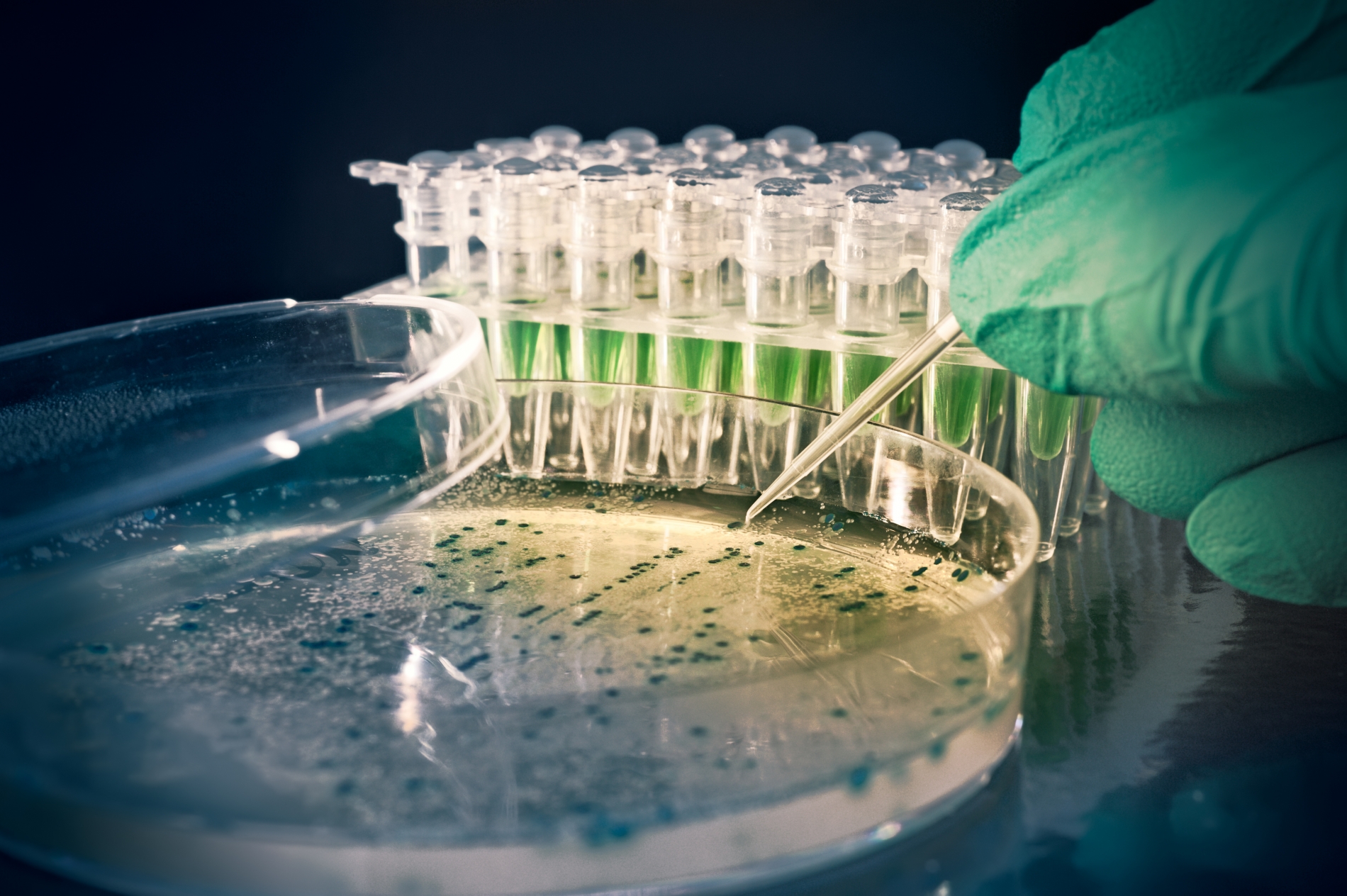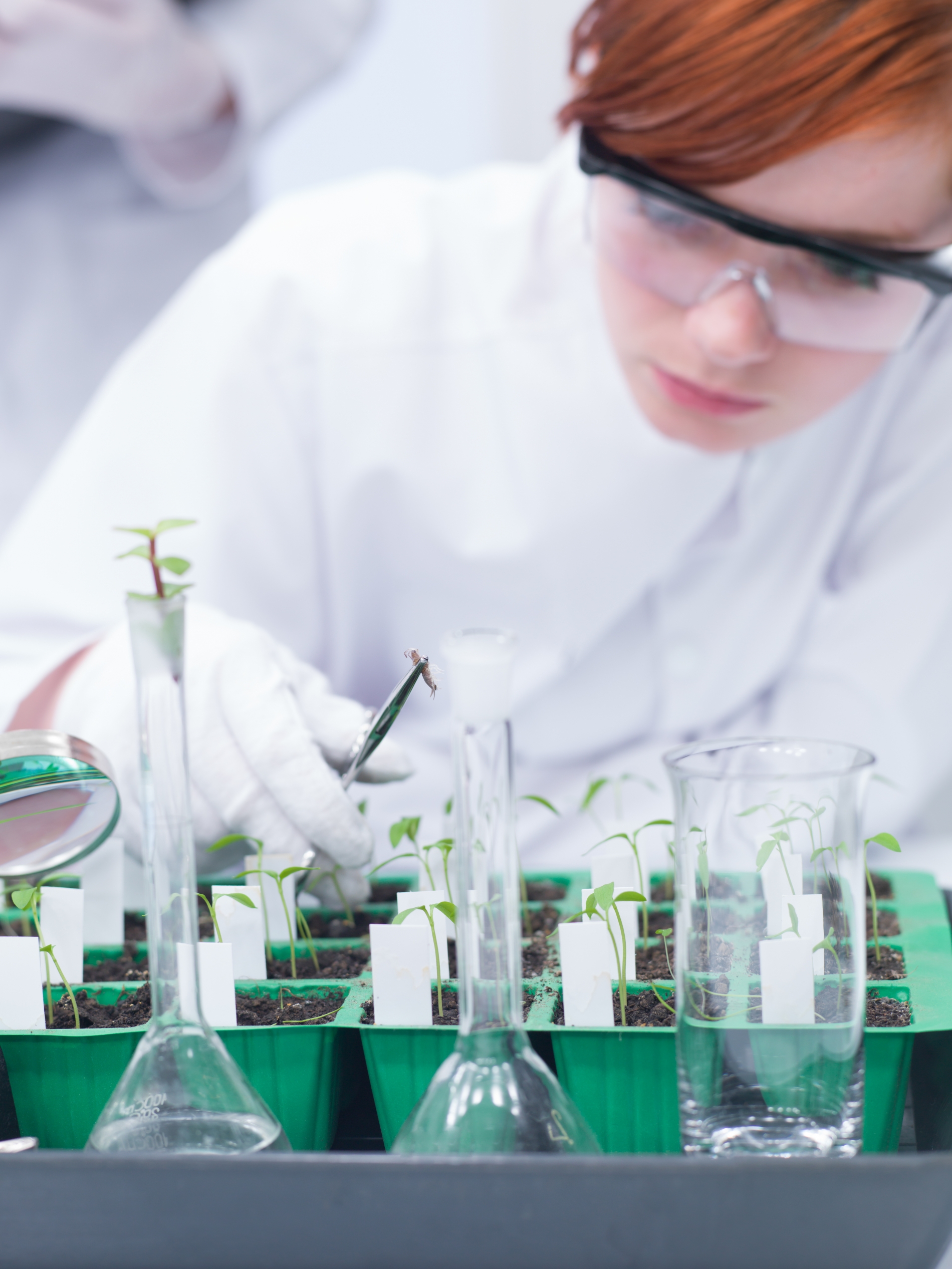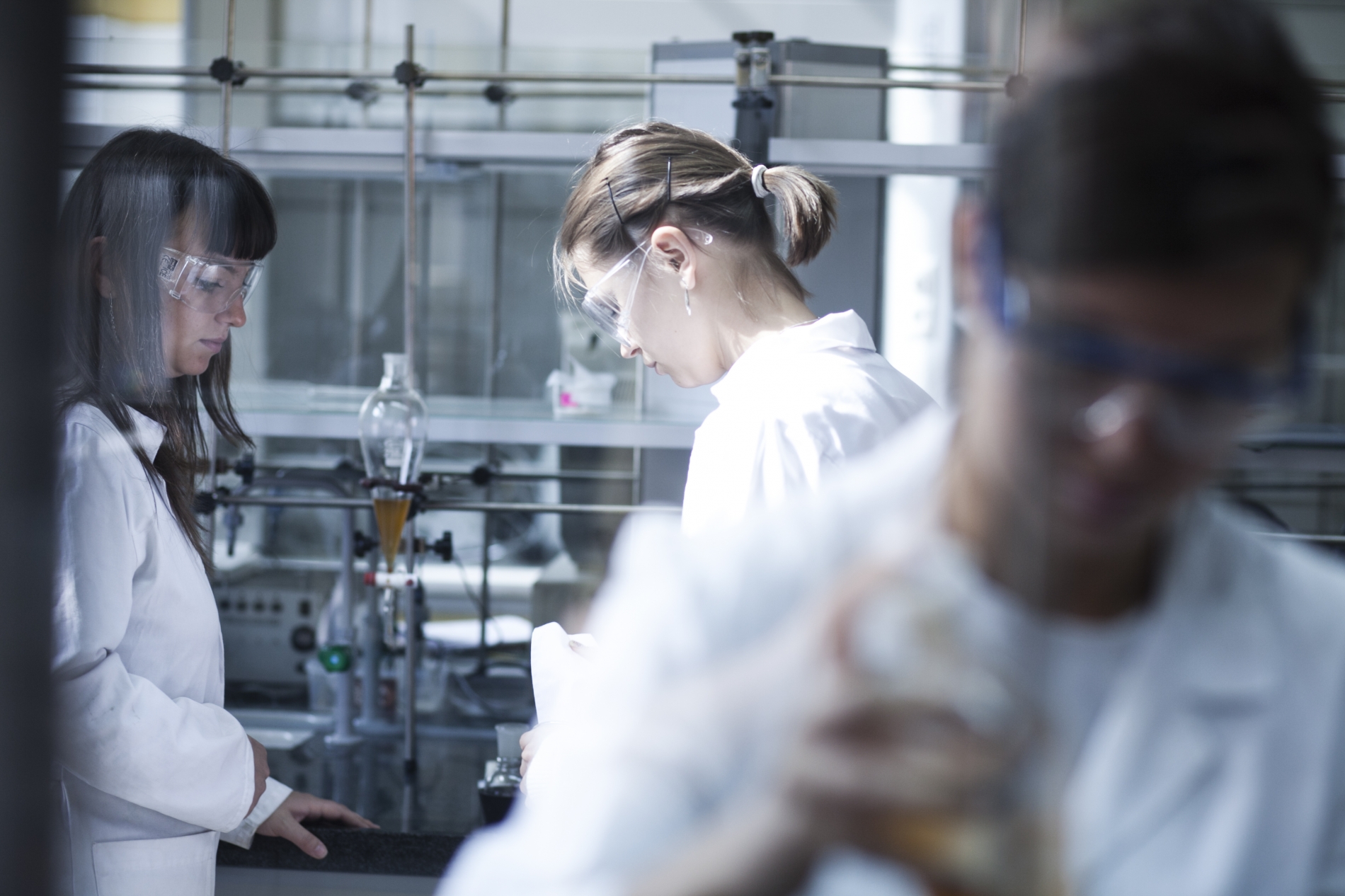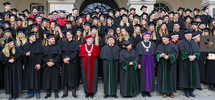Biotechnology - studies in Polish
Description
BIOTECHNOLOGY - the aim of education in the field of biotechnology is the education of students in the field of thorough biological knowledge and the basics of physics, chemistry, and computer science. A graduate of biotechnology is well prepared to take up work in modern biological, medical, biochemical laboratories, pharmaceutical companies and companies related to environmental protection as well as research, control and diagnostic laboratories. Biotechnology at the Wrocław University of Science and Technology is involved in bioprocess engineering, biochemistry, molecular biology and genetic engineering, environmental protection, biocatalysis, bioorganic and organic chemistry, modern engineering and medical analytics and design of new drugs.
What we teach?
 Biotechnology at the Faculty of Chemistry has a multi-disciplinary character. It focuses on obtaining new biomaterials, studying their structure, properties and their practical application, studying the molecular mechanisms of biological signal transmission and, therefore, developing procedures for obtaining and recombining proteins, crystallization and analysis of relationships - function, synthesis of biomolecules that are potential drugs and design of biosensors. The studies combine knowledge of basic sciences such as chemistry, biology, molecular biology, genetic engineering, biophysics and bioinformatics with practical aspects of biotechnological processes.
Biotechnology at the Faculty of Chemistry has a multi-disciplinary character. It focuses on obtaining new biomaterials, studying their structure, properties and their practical application, studying the molecular mechanisms of biological signal transmission and, therefore, developing procedures for obtaining and recombining proteins, crystallization and analysis of relationships - function, synthesis of biomolecules that are potential drugs and design of biosensors. The studies combine knowledge of basic sciences such as chemistry, biology, molecular biology, genetic engineering, biophysics and bioinformatics with practical aspects of biotechnological processes.
Teaching staff
Around the broadly understood biotechnology, there is a group of experienced teachers, among others prof. P. Kafarski, prof. A. Ożyhar, prof. Oleksyszyn, prof. R. Gancarz, prof. K. A. Wilk, prof. J. Bryjak, prof. Dobryszycki, prof. S. Lochyński, prof. A. Noworyta and prof. A. Sokalski, as well as young researchers including prof. A. Trusek-Hołownia (bioprocess engineering), prof. Ł. Berlicki (design and synthesis of enzyme inhibitors) and prof. T. Andruniów (bioinformatics), dr. M. Sieńczyk (design and synthesis of potential drugs), dr. J. Cabaj (biosensors), dr. I. Maliszewska (nanomaterials), prof. E.Żymańczyk-Duda, dr. M. Klimek-Ochab (microbiology).
The didactic activity is based on the scientific experience of several Faculty units, including the Department of Biochemistry (headed by Prof. A. Ożyhar, Prof. Dobryszycki), which mainly concerns basic research concerning the structure-function of proteins, protein-DNA interaction, the folding of the polypeptide chain and architecture of multicomponent protein complex transcription factors from DNA, as well as various expression and purification techniques of recombinant proteins. In recent years, the object of research is so-called Inherently disordered proteins involved in the process of biomolecularisation of otolites, ototones and teeth, which is the introduction to application research on new biomaterials.
In the Department of Bioorganic Chemistry (headed by Prof. P. Kafarski), work is being carried out in the field of design, including computer-assisted, and synthesis of inhibitors of selected enzymes in the hope of obtaining new drugs or for agrochemical purposes. The group headed by prof. S. Lochyński works, among others, on the biotransformation of turpentine components, e.g. karen, for holding compounds useful for the synthesis of drugs and fragrances.
In the Department of Bioprocessing and Biomedical Engineering (headed by Prof. Anna Trusek-Hołownia), conducted, among others, research on drug transport, volume immobilization of biocatalysts and modeling of polymer structures for special tasks. The aim of the research is a mathematical description of the biotechnological process in order to find the optimal range of parameters influencing the process. Recently a microbrewery has been started for teaching purposes.
In the Department of Medical Chemistry and Microbiology (supervised by dr. habil. M. Sieńczyk, Prof. J. Oleksyszyn) research is conducted to rationally design and receive new antibacterial and antineoplastic therapies and to develop new diagnostic methods, mainly based on chicken antibodies IgY. The team is currently carrying out several projects concerning the design, synthesis and in vitro and in vivo studies of the anti-cancer potential of phosphonic and phosphine compounds with potential anticancer properties.
In the Department of Organic and Pharmaceutical Technology (headed by Prof. Kazimiera A. Wilk), the research concerns the synthesis, aggregation and utility properties of bio- and chemodegradable and bioactive polymerizable surfactants for the needs of industry: household chemistry, cosmetic and pharmaceutical formulations, as well as drug transport systems at the nanoscopic level (nanocapsules).
In the group of "bioinformatics" headed by prof. Andrzej Sokalski in the Advanced Materials Engineering and Modeling Group, new methods are developed for predicting catalytic or inhibitor activity of enzymes and modeling of molecular mechanisms of enzymatic reactions, including characteristics of static and dynamic properties of optimal catalysts in chemical reactions. Conformational analyzes and field effects in crystals are carried out, as well as a description of the physical nature of intermolecular interactions of molecular aggregates that may be used in bionanotechnology and material engineering.
Teaching facilities
The Faculty of Chemistry of the Wrocław University of Technology cares for the development of the didactic infrastructure. We strive to provide students of our Faculty with the best possible conditions for studying chemistry. Modern computer rooms, very well-equipped laboratories, lecture halls with full multimedia facilities allow for comfortable teaching and learning.
The laboratories are equipped with high-class laboratory equipment, which allows students to get acquainted with the latest techniques and methods of synthesis and analysis.
Didactics in the field of Biotechnology takes place in modern specialized laboratories. On the first level to basic subjects (chemistry, biology, physics, etc.) and didactics of microbiology, biochemistry, enzymology, genetic engineering, bioprocess engineering, biotechnology and bioinformatics. Laboratories addressed to second-level students are specialized and are often associated with the database of individual scientific institutions in which students prepare their diploma thesis.
Other opportunities
BIOTOP scientific club for biotechnology students guarantee personal development
Wide scientific contacts result in publications in renowned scientific journals, e.g.
- Ruggeri F, Zosel F, Mutter N, Różycka M, Wojtas M, Ożyhar A, Schuler B, Krishnan M.Single-molecule electrometry. Nature Nanotechnol. 2017 Mar 13.
- Dawidowski M, Emmanouilidis L, Kalel VC, Tripsianes K, Schorpp K, Hadian K, Kaiser M, Mäser P, Kolonko M, Tanghe S, Rodriguez A, Schliebs W, Erdmann R, Sattler M, Popowicz GM. Inhibitors of PEX14 disrupt protein import into glycosome and kill Trypanosoma parasites. Science. 2017 Mar 31; 355 (6332): 1416-1420
- Penczek A, Sienczyk M, Wirtz CR, Burster T.Cell surface cathepsin G activity differs between human and natural killer cell subsets. Immunol Lett. Nov 2016: 179: 80-84. doi: 10.1016 / j.imlet.2016.09.010. Epub 2016 Sep 24.
- Beker W, van der Kamp MW, Mulholland AJ, Sokalski WA Rapid Estimation of Catalytic Efficiency by Cumulative Atomic Multipole Moments: Application to Ketosteroid Isomerase Mutants. J Chem Theory Comput. 2017 Feb 14; 13 (2): 945-955
Industry contacts: PCC ROKITA, Selvita, Novasome, Hasco-Lek and many others
Erasmus+ - permanent exchange
After the graduation
After graduation, graduates are prepared to take up further education by choosing one of specializations offered at Faculty of Chemistry, as well as they may work in laboratories of pharmaceutical companies (Selvita, Hasco-Lek, Novasome, Polfarma), consulting companies (McKinsey), industry (PCC Rokita), in start-up e.g. Pure Biologics (production of recombinant proteins and biotests), companies related to medical diagnostics (ImmunoChem), etc.

 Biotechnology at the Faculty of Chemistry has a multi-disciplinary character. It focuses on obtaining new biomaterials, studying their structure, properties and their practical application, studying the molecular mechanisms of biological signal transmission and, therefore, developing procedures for obtaining and recombining proteins, crystallization and analysis of relationships - function, synthesis of biomolecules that are potential drugs and design of biosensors. The studies combine knowledge of basic sciences such as chemistry, biology, molecular biology, genetic engineering, biophysics and bioinformatics with practical aspects of biotechnological processes.
Biotechnology at the Faculty of Chemistry has a multi-disciplinary character. It focuses on obtaining new biomaterials, studying their structure, properties and their practical application, studying the molecular mechanisms of biological signal transmission and, therefore, developing procedures for obtaining and recombining proteins, crystallization and analysis of relationships - function, synthesis of biomolecules that are potential drugs and design of biosensors. The studies combine knowledge of basic sciences such as chemistry, biology, molecular biology, genetic engineering, biophysics and bioinformatics with practical aspects of biotechnological processes.
